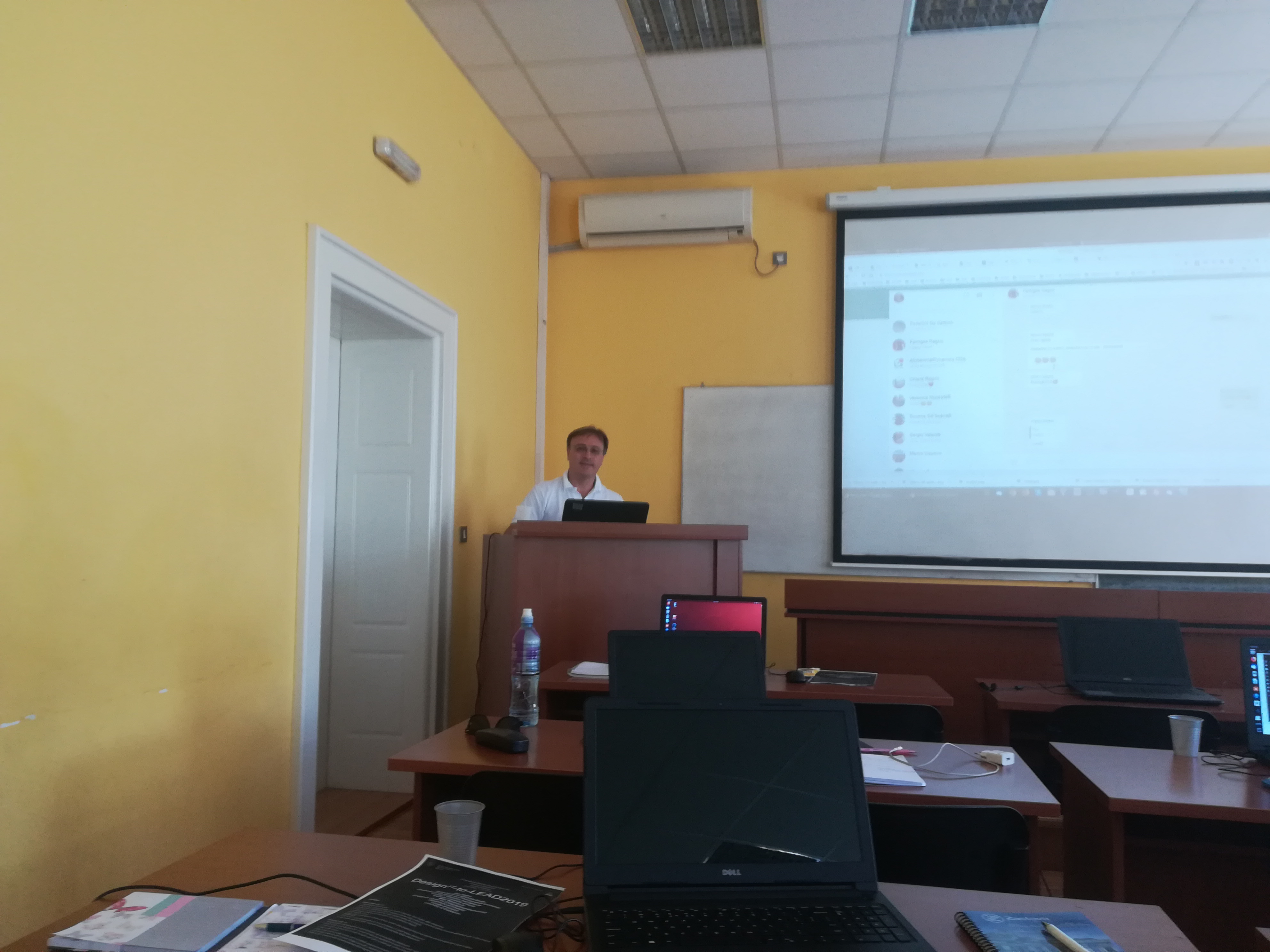The University of Kragujevac and Sapienza University of Rome were the organizers of the computational medicinal chemistry workshop “DesignIT-to-LEAD2019” held at the University of Kragujevac, Faculty of Sciences and Mathematics (10-11th July 2019). The principal lecturer was Prof. Rino Ragno, an Associated Professor at the Sapienza University of Rome. Professor Ragno has published more than 120 papers in peer-reviewed journals in English with more than 2700 citations (scopus.com accessed July 2019), an h-index of 31, 3 patents, three books or book chapters, presented his work at numerous conferences and symposia, and he was awarded by the Italian section of Medicinal Chemistry in 2005 for his research. The course was run with the collaboration of Prof. Milan Mladenovic, the Kragujevac local organizer.
He agreed to give answers on questions for our journal, Chemia Naissensis.
- How long are you doing research related to computational chemistry?
I started to study informatics since soon after the master degree in medicinal chemistry (1989), then in 1992, I began to apply it to the chemistry. At the beginning, I used to make both synthetic chemistry and molecular modeling till 1996 when I had the opportunity to go to Washington University of St. Louis in the Garland Marshall lab. Since then, I have been performing all kind of computational studies from molecular mechanics to quantum chemistry through conformational analysis, molecular docking, and not to forget QSAR and other similar techniques. So, to summarize, I have been working in this field for more than 25 years.
- What is the significance of computational chemistry in drug design?
Application of computational chemistry in drug design means to tackle chemistry rationally. Particularly in the medicinal chemistry field, a lot of compounds need to be synthesized to disclose interestingly new chemical entities. Computational chemistry speed-ups the discovery of new hits and their conversion to new lead compounds, thus saving time and money.
- There is the resistance of “traditional” chemists towards computational chemistry. What do you think about it?
Unfortunately, yes, there is a lot of resistance from “traditional” chemists. It is likely because that computational chemistry requires the chemists to learn a brand new science (informatics) to be applied to chemistry. I think that we are now in an important period where informatics and programming languages should be taught since primary school, so that in future its application will be natural as speaking or writing English nowadays.
- Is there any interest of young chemists in computational chemistry?
Yes, there is a lot of interest, but they are not supported enough. Again, they suffer from low preparation in informatics and computational techniques.
- Which literature do you recommend to those interested in computational chemistry?
There is not precise literature I could recommend. Of course, the first step should to acquire the basic skills in manage a personal computer, preferably if running Linux operating system, but also Microsoft and Mac OS can also be acceptable if deeply investigated. Regarding the application of computer in chemistry, I recommend any book a student wishes to start with, but of course, my preferred way is to get the information directly from the source like high-level scientific articles and the references cited in. I also recommend taking some practical courses and why not some massive open online courses (MOOC), many of them are quite good.
- What do you think about the further development of computational chemistry? Can it replace in vivo experiments?
I do not think computational chemistry will replace experiments; for sure it will allow saving time and money using the better design of the experiments.
- Are you satisfied with your collaborations with universities from Serbia, and especially we would like to know about the perspectives of these collaborations?
I am very satisfied with the collaboration I have in Serbia. I have two collaboration running, the first on computational chemistry and essential oil researches in Kragujevac with Prof. Milan Mladenovic and the other on natural compounds research in Belgrade with Dr. Vanja Tadic. With Prof. Milan Mladenovic we have a solid connection, and we will continue to collaborate for many years more. Soon we will apply to some project call, and hopefully, we could get some fund to raise the level of the collaboration. Soon there will be the possibility to open ERASMUS agreement between Europe and Serbia, and I will try to set-up one between Roma and Kragujevac Universities.


